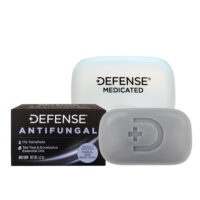There are many different types of fungal skin infection treatments, including those provided by a doctor or found over the counter, those which are general home remedies and preventative, and those which are herbal. Depending on your condition, it is essential to discuss any possible treatment for these conditions with a doctor.
Types of Skin Fungus
There are several different types of fungal skin infections. They include athlete's foot, jock itch, ringworm, and nail fungus. These conditions are usually caused by different types of fungal spores attaching to the skin. While they are irritating, they are not often dangerous. However, it is important to receive treatment if you believe you may have one of the conditions mentioned above.
Doctor-Recommended Treatments for Fungal Skin Infections
In most cases, doctors should treat individuals with any of the above conditions. Conditions such as athlete's foot, jock itch, and ringworm are all typically treated with topical medications applied directly to the area of infection.
According to the New York State Department of Health, sometimes ringworm can be treated with an oral tablet or powder as well.
These treatments are usually successful in helping individuals with fungal infections on their skin. However, nail infections are often much harder to treat, and topical creams do generally not cure them. According to the Center for Disease Control, a nail can take a year or longer to heal completely, and in some severe cases, a doctor may remove the nail if it is extremely infected.
General Fungal Skin Infection Treatment
Like many other medical conditions, there are several general treatments that individuals with fungal skin rashes can use to help improve the issue. Athlete's foot, jock itch, and ringworm are all contagious, so it is essential to wash your hands regularly if you have one of these conditions to reduce the possibility of it spreading.
Also keeping the infected area itself clean and dry is essential. Your condition will only worsen if the area becomes dirty or moist. Foot infection treatment also entails wearing clean socks and not walking around barefoot, especially if the situation is most severe, according to the Office of Women's Health. Above all, it is vital that you do your best to keep the area as clean as possible.
Over-the-counter medications can also be found to help in the treatment of fungal skin infections. It is always advisable, however, to discuss the use of any medication with your doctor first, even if it is not prescription-based.
Natural Treatment of Fungal Skin Infections
Natural and herbal remedies have sometimes been known to be helpful in the treatment of these conditions as well. Tea tree oil is one that many individuals have used and believe to be beneficial in reducing a fungal infection. In fact, according to the National Library of Medicine, "Topical application of 100% tea tree oil solution, twice daily for six months, can cure fungal toenail infection in about 18% of people who try it."
Choosing a Treatment Type for Fungal Skin Infection
You should always consult your doctor about a possible treatment plan, whether it is natural, over-the-counter, or prescription-based. There are many possible treatments for the different, common infections caused by fungal spores. If one does not give you the results you need, you can always consider another. Defense Antifungal Medical Bar Soap should be considered when dealing with fungal infections for cleaning and treating the infected area.
